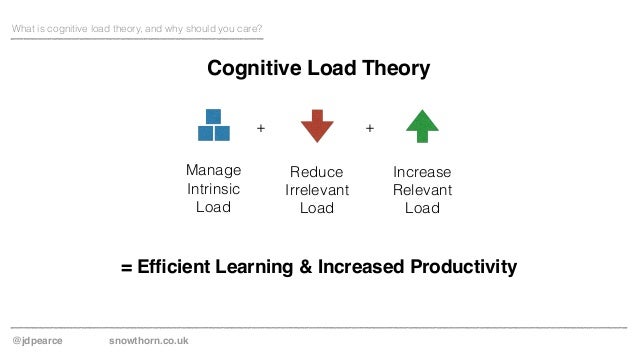Manipulation of others
7 Signs to Look For
Written by WebMD Editorial Contributors
Medically Reviewed by Dan Brennan, MD on November 19, 2020
In this Article
- What Is Manipulation?
- Signs of Manipulation
- Treating Manipulation
- Support and Resources
It’s natural for people in relationships to experience problems as the relationship grows. Sometimes these problems stem from emotions or greed. One type of problem that can surface in any type of relationship is manipulation. This is a problem that can lead to others along the way. Learn the signs of manipulation and what to do about it if it surfaces in your relationships with others.
What Is Manipulation?
Manipulation is the exercise of harmful influence over others. People who manipulate others attack their mental and emotional sides to get what they want. The person manipulating — called the manipulator — seeks to create an imbalance of power, and take advantage of a victim to get power, control, benefits, and/or privileges at the expense of the victim.
Manipulation can happen in close or casual relationships, but they are more common in closely formed relationships. In a way, everyone can manipulate others to get what they want. But manipulation is defined as any attempt to sway someone’s emotions to get them to act or feel a certain way.
Manipulators have common tricks they’ll use to make you feel irrational and more likely to give in to their requests. A few common examples include:
● Guilt
● Complaining
● Comparing
● Lying
● Denying
● Feigning ignorance or innocence
● Blame
● Mind games
Signs of Manipulation
Manipulation can happen in many forms. In fact, sometimes kindness can be a form of manipulation depending on the intent. Then the question is raised, is any form of influence considered manipulation?
Whether manipulation has good or bad intentions, it is still an attempt to undermine your rational thinking.
People who manipulate others have common traits that you can look for. They include:
They include:
- They know your weaknesses and how to exploit them
- They use your insecurities against you
- They convince you to give up something important to you, to make you more dependent on them
- If they are successful in their manipulation, they will continue to do so until you are able to get out of the situation
Other signs of manipulation include:
Location Advantage
A manipulator will try to bring you out of your comfort zone and places that you are familiar with to have an advantage over you. This can be in any place that the manipulator feels ownership of or in control.
Manipulation of Facts
A manipulator will actively lie to you, make excuses, blame you, or strategically share facts about them and withhold other truths. In doing this, they feel they are gaining power over you and gaining intellectual superiority.
Exaggeration and Generalization
Manipulators are experts in exaggeration and generalization. They may say things like, “No one has ever loved me.” They use vague accusations to make it harder to see the holes in their arguments.
They may say things like, “No one has ever loved me.” They use vague accusations to make it harder to see the holes in their arguments.
Cruel Humor
This tactic used by manipulators is meant to poke at your weaknesses and make you feel insecure. By making you look bad, they have a sense of psychological superiority.
Gaslighting
This tactic is used by the manipulator to confuse you and make you question your own reality. The manipulation happens when you confront the abuse or lies and the manipulator tells you that it never happened.
Passive- A ggression
People can be passive-aggressive for many reasons that aren’t always intended to manipulate. But chronic (long-term) manipulators will use this tactic to make you feel guilty, and give backhanded compliments. They are doing this to show anger without directly being angry, making you feel confused.
Constant Judging
The manipulator does not hide their manipulation behind humor or “good fun. ” In this case, they are openly judging, ridiculing, and dismissing you. They want to make you feel like you’re doing something wrong, and that no matter what you do you will be inadequate to them. They only focus on negative aspects and do not offer constructive solutions.
” In this case, they are openly judging, ridiculing, and dismissing you. They want to make you feel like you’re doing something wrong, and that no matter what you do you will be inadequate to them. They only focus on negative aspects and do not offer constructive solutions.
Treating Manipulation
Manipulation can be hard to identify or admit to when it’s happening to you. You are not at fault for having manipulation happen to you. There is no way to prevent manipulation, because it’s an issue of the manipulator. It’s up to the manipulator to find help.
However, there are ways to reduce the emotional impact of manipulation. Here are ways to set strong boundaries in a relationship:
- Communicate in clear, direct, and specific ways.
- Understand when manipulation is not normal and needs to be addressed.
- Set boundaries around manipulation and find a way to let the person know that you understand they are manipulating you, and that you don’t want to be a part of that conversation.

- Seek out a trusted individual, who is not under the influence of the manipulator, and ask their advice about your situation.
Being able to identify manipulation is a large part of putting an end to it. If manipulation is coming from a loved one, it can be very difficult to seek help. However, manipulation can take a toll on your own emotional well-being. Therefore, it’s important that you are able to find a safe way out of the situation.
Support and Resources
If you feel like you may be getting manipulated by a loved one, friend, or coworker it is important to reach out to a trusted resource to find help. Resources to consider include:
- Relationship counselor
- Therapist
- Friends
- Trusted family members
- National abuse hotlines
How to Spot a Manipulative Person
Manipulation is an attempt to gain control of a situation. A manipulative person may resort to diverse tactics to get what they want. Learning the tell-tale signs can help you protect yourself.
Hearing the word “no” or sensing a loss of control may not be fun. For some people, it’s more difficult to experience than for others. So, at times, an individual may resort to covert or underhanded strategies to achieve their desired outcome — this is known as manipulation tactics.
Manipulation exists on a spectrum, and at times, it can be subtle and difficult to detect, but it may still leave you feeling “off.”
Manipulation is boundary-crossing behavior as a means of trying to gain control or power in interpersonal interaction, says Lauren Masopust, a licensed marriage and family therapist in Roseville, California.
Manipulation can be:
- pro-social or beneficial to relationships
- antisocial or harmful to relationships
To qualify a behavior as manipulation, it’s important to be aware of the person’s developmental stage, explains Masopust.
For example, toddlers don’t yet have the words to describe how they’re feeling, so they may throw a temper tantrum to try to get their needs met. “This is actually not developmentally inappropriate,” says Masopust. “Over time, however, people learn this is not effective and develop more nuanced ways of social problem solving.”
“This is actually not developmentally inappropriate,” says Masopust. “Over time, however, people learn this is not effective and develop more nuanced ways of social problem solving.”
For teenagers, she adds that a pro-social example of manipulation would look like telling a white lie to help their friend save face or keep their position in a social group.
By adulthood, though, many adults grow out of manipulative tendencies and develop more subtle ways of achieving their goals, like being assertive and setting healthy boundaries, explains Masopust.
She adds that some people who have experienced broken relationships or traumatic incidents may learn to resort to behaviors like manipulation, aggression, or deceit to get their needs met.
“These behaviors are usually the individual’s attempt at maintaining power or control in a relationship, though they may not be aware of the damage they are causing to others,” says Masopust.
Is there a manipulative personality type?
No. There’s no personality type that may be called “manipulative.”
There’s no personality type that may be called “manipulative.”
Manipulation is considered a behavior that occurs on a spectrum, with some strategies being more severe or harmful than others.
In some cases, manipulation tactics can be pathological, meaning they occur repeatedly, for a long time, and across circumstances, like work, school, and personal relationships.
This pattern of behavior could be a symptom of an underlying personality disorder, like narcissistic personality disorder (NPD), or other mental health conditions.
Manipulation isn’t always easy to spot. In fact, at times, it can be subtle, as someone may appear well-meaning toward you, says Phillips.
“For example, those with antisocial personality disorder may come across as very charming, but their goal may be to have control or harm you,” he says.
Some signs of a manipulative person may include:
- persistent excessive attention, love, and flattery
- persistence despite boundaries
- time pressure (to get you to act)
- incongruence between words and actions
- you feel guilt, shame, or generally “off” around this person
DARVO strategy used by manipulative people
You may find it helpful to familiarize yourself with “DARVO. ” This is one way a manipulative person can shift the blame, confusing the details of what happened and who may be at fault.
” This is one way a manipulative person can shift the blame, confusing the details of what happened and who may be at fault.
It works like this:
- D: denying the behavior and
- A: attacking you by
- R: reversing the
- V: victim and
- O: offender roles
For example, to stay employed, someone might say to their manager, “I didn’t turn the project in late. I notice that you’re forgetful sometimes; I bet you forgot to tell me the due date in our meeting last week.”
Manipulation can come in many forms, but the main goal of all types is likely a sense of power, control, or resources.
Some common manipulation tactics may include:
- coercive control: taking charge of your schedule, money, or connections
- changing the rules: making the “finish line” harder and harder to achieve
- emotional blackmail: threatening to release information or abandoning you unless you oblige
- gaslighting: denying or minimizing what you see, hear, feel, or know
- guilt-tripping: keeping score or reminding you of what you owe them, or playing the victim
- isolation: trying to limit access to your inner circle or community
- lying: omitting parts of the truth or making up false information
- love-bombing: overwhelming you with flattery and attention
- passive aggression : expressing anger indirectly, like back-handed compliments
- projection: accusing you of doing what they are doing
- silent treatment: ignoring your attempts at communication
- smear campaign: talking badly about you behind your back to others
- triangulation: pulling in a third party to try to persuade you to do something
- triggering your insecurities: put-downs or casting insults disguised as jokes
When it comes to the causes of persistent manipulative behavior, everyone’s story and motivations may be different.
A consistent pattern of manipulation can often form in childhood, says Dr. Lee Phillps, a psychotherapist and certified sex and couples therapist in Virginia and New York.
For example, if someone learns early on that they can’t get their needs met directly, they may have to source other ways to feel safe emotionally, physically, and beyond.
“If a manipulative person grew up in a home characterized by competitiveness and conflict, this can carry with them into adulthood,” he explains. “If they were abandoned by a parent or a caretaker, they can crave attention as an adult and may manipulate to achieve it.”
Some mental health conditions and interpersonal styles can be associated with constant manipulative behaviors (though it’s also possible to still be manipulative without one).
Examples may include:
- antisocial personality disorder (ASPD): using a fake persona to get into your circle
- borderline personality disorder (BPD): taking frantic efforts to avoid abandonment
- codependency: using strategies to “manage” people around you
- histrionic personality disorder (HPD): using appearance to acquire validation
- insecure attachment style: using a break-up as a test of someone’s loyalty
- narcissistic personality disorder (NPD): using projection to shift the blame to you
- substance use disorder (SUD): using an excuse to acquire funds for substances
Yes, manipulation can be a form of psychological and emotional abuse.
“The victim of a manipulator will often question their own sanity and feel like they are the problem. Due to the abuse, the person will often live in fear and report they are constantly walking on eggshells,” says Phillips.
Research shows that being on the receiving end of emotional manipulation can lead to:
- anxiety
- depression
- increased stress
- lowered life satisfaction
- low self-esteem
- social withdrawal
Manipulation is a behavior to try and achieve a means to an end, like control or a specific desired outcome.
If you find yourself resorting to manipulation in relationships, you may find it helpful to seek cognitive behavioral therapy (CBT), says Phillips.
If you’re the target of manipulation or experiencing narcissistic abuse, it’s highly advisable that you reach out for professional support.
Skillful manipulation: how to communicate with intolerable people
Even if you decide to complain, you are unlikely to be believed: manipulators are too persuasive. How to properly build communication with manipulators, too sensitive and passive-aggressive people - in Richard Templar's book "Rules for managing people. How to unleash the potential of each employee”, which is published by the Alpina Publisher at the end of January
How to properly build communication with manipulators, too sensitive and passive-aggressive people - in Richard Templar's book "Rules for managing people. How to unleash the potential of each employee”, which is published by the Alpina Publisher at the end of January
It can sometimes be difficult with everyone, but there are people with whom it is almost impossible or even dangerous to communicate. They can be aggressive, seek to control everything, or be negative. Difficult people will still be difficult, but if you understand their secrets, strategies and tricks and adapt your behavior, then you can get along with them. Forbes publishes a chapter from Richard Templar's book The Rules for Managing People. How to unleash the potential of each employee» - on how to deal with hypersensitive people, passive-aggressive and manipulative characters.
Sensitive people can't get tough
I once worked with a guy who could be thrown off balance by literally anything. The slightest hint of criticism, a sad story from the news, any kind of negative emotion that someone showed in his presence. Dealing with him sometimes became difficult - if you needed to somehow constructively evaluate his work, it was like walking on eggshells.
The slightest hint of criticism, a sad story from the news, any kind of negative emotion that someone showed in his presence. Dealing with him sometimes became difficult - if you needed to somehow constructively evaluate his work, it was like walking on eggshells.
If you yourself are not such a hypersensitive person, dealing with such people is probably a problem for you. Therefore, I have included hypersensitive people in the section on difficult people - because it is sometimes very difficult to communicate with them. However, unlike most of the other types described here, sensitive people are not at fault. Most likely, they were born that way, and we need to learn to adapt to them. At the same time, they are often the first to identify potential problems and dangers, and they can also be excellent diplomats, because they know how not to upset people. They usually treat others the way they would like to be treated, so they rarely treat someone rudely or inconsiderately. It makes no sense to advise them to "be tougher." They can't, and they really shouldn't.
It makes no sense to advise them to "be tougher." They can't, and they really shouldn't.
The problem, especially if you have slightly thicker skin than them, is not to upset them. Therefore, next to them you need to be very careful. Hypersensitive natures perfectly capture any hint or innuendo, so just be kind and thoughtful.
Of course, sometimes it is necessary to tell such a person that his work is not up to standard or that something has gone wrong in your relationship. Assuming that he is not at the same time an emotional blackmailer, then even if he bursts into tears, he will not do it in order to make you feel guilty. It will just be an uncontrollable emotional reaction. Try to get him to recognize problems on his own: “There's still room for improvement here. What do you think would help speed up the process next time?” With this approach, he himself will make constructive proposals, and you will only have to agree.
Note that the phrases in this example are built impersonally. Not “what can you do to speed up the process?” But “what would help speed it up?”. This makes it easier to avoid personalized criticism. If your partner is hypersensitive, you can say, "I was terribly upset when I tried to start the car and found that there was no gas in it" instead of "because you spent all the gas."
When dealing with a hypersensitive person, focus on the positive and use a carrot instead of a stick. Explain to him what you want, not what you don't want. You want to always have some amount of gasoline left in the car. There is no need to talk about the fact that otherwise you are angry.
An elementary school teacher once told me that he had a "list of students not to yell at" because they couldn't stand it. Likewise, hypersensitive people should be on your list of those to avoid if you are in a bad mood and easily pissed off.
Passive-aggressive people are afraid of conflict
I remember coming home very late one day as a teenager. An elderly relative was visiting us, and the next morning at breakfast she said to me: “I hope you had a good time? Yes, probably, since you did not come home until twenty minutes past three! It was said with enthusiasm, and I should have smiled back, but I understood the implication perfectly. What she really wanted to say was, in front of my mother, “You woke me up when you got home!” That's why she knew exactly what time it was.
The purpose of passive-aggressive behavior is to criticize or complain without going into open conflict. We all do this sometimes, but for some people it's normal behavior when they're upset or angry. Usually such people are afraid of conflict, usually because they have some unpleasant memories associated with it, but they do not want their disappointment to go unnoticed. In fact, passive-aggressive behavior is completely pointless because it doesn't solve any problems. It just makes everyone feel uncomfortable.
I once had a colleague who always turned in any work at the last minute so that everyone else would work harder. Technically, he was on time, but all the other team members always tried to help each other in order to finish everything early. This man was angry with us and thus tried to punish us. He could not say that he had some kind of problem, because he was afraid to provoke our aggression. I still have no idea what he was angry about, but whatever it was, it never resolved. I suspect he is still angry with those he works with today.
One of the biggest problems with this behavior is that if you complain directly to a person, they will definitely deny everything. “I didn’t do everything at the last moment on purpose. It just took longer than I thought." And it turns out that you are unfairly accusing a person. And he seems to have the right to feel offended.
And he seems to have the right to feel offended.
What to do if you got such a passive-aggressive boss, partner, mother, colleague, child? First, acknowledge that this is aggressive behavior, no matter how well veiled it may be. Otherwise, you will feel guilty that you "unfairly" accuse him. If you let him continue like this, it will be bad for both of you.
Sometimes humor works. In our family, any behavior of this kind is usually met with a joke: “You don’t need to be so passive-aggressive with me!” Even if this person denies everything, after such words, he can no longer continue to behave like this. More stubborn violators should be pinned to the wall. But at the same time, you need to show them that expressing your disappointment or resentment does not necessarily lead to conflict. This is what they fear and will not change their behavior unless they realize that there is no reason for their fear. Just tell it like it is and show them that you want to work out a solution to their problem that will benefit everyone.
Also, be specific. Don't say, "You always turn in your work at the last minute." Give specific examples and let the person know that this is not acceptable. In no case do not try to answer the aggressor in the same way, for example, do everything for him at the last moment. This will make you even more passive-aggressive than he is. What about your moral high ground then?
Manipulation is not just persuasion
The perverse competitive spirit we talked about in the previous rule may be one of the reasons why people manipulate others to get what they want. Of course, we all try to manipulate someone from time to time, but for some people, the manner of covertly and insidiously using others becomes the norm.
I remember very well talking a lot about ways to get people on your side, and you can see that this is also a form of manipulation. In my defense, I can say that I urge you to use my advice in a way that does not harm, and in many cases, on the contrary, helps other people. That's why I use the word "influence" and not "manipulation." As you know, I'm just sharing my observations about what works. Of course, I must honestly admit that insidious and unscrupulous approaches sometimes work too. But when I talk about manipulators, I'm talking about people who plot and intrigue without considering how it will affect other people, and often in doing so harm them.
That's why I use the word "influence" and not "manipulation." As you know, I'm just sharing my observations about what works. Of course, I must honestly admit that insidious and unscrupulous approaches sometimes work too. But when I talk about manipulators, I'm talking about people who plot and intrigue without considering how it will affect other people, and often in doing so harm them.
Okay, now let's talk about what's wrong with manipulators. I can't list all the possible—often complex—reasons for this behavior. But the point boils down to one thing: life experience has somehow convinced these people that manipulation is the best way to get what you want. Experienced and successful manipulators are likely to get what they want most of the time. The problem is that, as a rule, this is not what you want.
Such people - at work or in the family - always find some new opportunities to control you. You know they do it, but you can't prove it. They deny everything - and so convincingly that your boss or colleagues are unlikely to believe you if you decide to complain. They ask leading questions, they blackmail you emotionally, they never admit their guilt, they try to convince you that only you have problems, they lie, they spread false rumors, they deliberately derail your plans, they instinctively feel your vulnerable places... An amateur manipulator is already difficult to deal with. And if you get a major league player, it's a real nightmare.
They deny everything - and so convincingly that your boss or colleagues are unlikely to believe you if you decide to complain. They ask leading questions, they blackmail you emotionally, they never admit their guilt, they try to convince you that only you have problems, they lie, they spread false rumors, they deliberately derail your plans, they instinctively feel your vulnerable places... An amateur manipulator is already difficult to deal with. And if you get a major league player, it's a real nightmare.
What to do with them? For starters, don't let them convince you that you are to blame. You know that this person is a manipulator, so any of his statements about your hypersensitivity, forgetfulness or illogicality are worth nothing. Learn to trust only your own perception of the situation. Every manipulator has his own favorite strategies - try to learn to recognize them and plan your responses in advance. If a manipulator at work is trying to take credit for you, start forwarding copies of letters to your boss that indicate otherwise (you can say that you just wanted to keep him updated on how work is going). If he wants to put some words into your mouth (“Don’t you think it’s better for children to go to bed early?”, “Isn’t that what you wanted?”), do not give in. Make it clear to him that this is his opinion, not yours.
If he wants to put some words into your mouth (“Don’t you think it’s better for children to go to bed early?”, “Isn’t that what you wanted?”), do not give in. Make it clear to him that this is his opinion, not yours.
Learn to say "no" to people who try to flatter you or play on your feelings. Don't make excuses - you don't have to. And in general, if possible, run away from manipulators like the plague.
- Cruel alarm clock. How to learn to get up early to get more done
- Why fiction is better than textbooks on management
- Independent spouses: a trend worth using
how some people control the minds of others
Psychological manipulation is deceitful or non-obvious actions aimed at changing the perception or behavior of another person. Such actions always advance the interests of the one who manipulates at the expense of other people and can cause painful emotions in the victims. Psychological manipulation is often associated with gypsy hypnosis or communication with scammers, but people who promote their ideas to the detriment of others are also found in everyday life. They can manipulate others consciously or unconsciously, depending on the goals and characteristics of their psyche.
Psychological manipulation is often associated with gypsy hypnosis or communication with scammers, but people who promote their ideas to the detriment of others are also found in everyday life. They can manipulate others consciously or unconsciously, depending on the goals and characteristics of their psyche.
Why are people psychologically manipulated?
At one time, a huge amount of research was carried out aimed at finding out the individual characteristics of people, especially susceptible to manipulation. However, at the moment, we can only say with certainty that everyone is subject to manipulation, and the effectiveness of manipulation always depends on the specific situation, the figure of the manipulator and many additional factors.
There is an assumption that people with a certain worldview are less trusting and more prepared to meet with manipulators.
Our brain is designed in such a way that we are forced to perceive information subjectively and not always adequately, and only our intuition and life experience help to correct this information. These mechanisms in certain circumstances can stop working, and then we can become victims of control by other people. Often this is due to situations where we do not have complete information. If this happened due to a simple deception, then we just need to know the true facts in order to complete the correct picture. In the case of psychological manipulation, a false picture can be extremely stable, and the appearance of correct facts in conjunction with iron logic is not always able to destroy it. There is an assumption that people with a certain worldview are less trusting and more prepared to meet with manipulators. However, at the same time, this is also their Achilles' heel, since distrust can also be manipulated.
These mechanisms in certain circumstances can stop working, and then we can become victims of control by other people. Often this is due to situations where we do not have complete information. If this happened due to a simple deception, then we just need to know the true facts in order to complete the correct picture. In the case of psychological manipulation, a false picture can be extremely stable, and the appearance of correct facts in conjunction with iron logic is not always able to destroy it. There is an assumption that people with a certain worldview are less trusting and more prepared to meet with manipulators. However, at the same time, this is also their Achilles' heel, since distrust can also be manipulated.
Very often psychological manipulation can be found in public and political life. A good example of the manipulation of public consciousness is the propaganda of the state's position on federal television channels in all programs: from news to evening entertainment shows. With regard to psychological manipulation in advertising, here the goal of control is not the beliefs and views of people, but their money. Advertising, like politics, uses false arguments, emotional persuasion, and sometimes even threats to manipulate people. For example, in advertising they can focus on the absence of some component that should not be contained there, but keep silent about the presence of a more harmful component in the composition. So the advertiser diverts the attention of potential buyers from the really important problem of the product. Also, an example of false argumentation can be seen in advertising, which talks about the presence of some advantage, which, in fact, is not. For example, the manufacture of products based on "old recipes" in modern mass production is almost impossible to implement.
With regard to psychological manipulation in advertising, here the goal of control is not the beliefs and views of people, but their money. Advertising, like politics, uses false arguments, emotional persuasion, and sometimes even threats to manipulate people. For example, in advertising they can focus on the absence of some component that should not be contained there, but keep silent about the presence of a more harmful component in the composition. So the advertiser diverts the attention of potential buyers from the really important problem of the product. Also, an example of false argumentation can be seen in advertising, which talks about the presence of some advantage, which, in fact, is not. For example, the manufacture of products based on "old recipes" in modern mass production is almost impossible to implement.
How to understand that you are being manipulated?
Whether a person is a manipulator is determined not by their behavior, but by the context in which this behavior is used, as well as the intention with which they perform certain actions. If a person specifically wants to mislead someone and influence their perception, emotions and behavior, then this person is a manipulator. The main goals of manipulators are to gain influence over another person or a certain situation, as well as to avoid personal responsibility for their action or, conversely, inaction. The manipulator, who is more likely to achieve his goal, hides his aggressive intentions, very quickly reveals the vulnerabilities of the victim, and at the same time does not worry about the possible consequences for the person he is manipulating.
If a person specifically wants to mislead someone and influence their perception, emotions and behavior, then this person is a manipulator. The main goals of manipulators are to gain influence over another person or a certain situation, as well as to avoid personal responsibility for their action or, conversely, inaction. The manipulator, who is more likely to achieve his goal, hides his aggressive intentions, very quickly reveals the vulnerabilities of the victim, and at the same time does not worry about the possible consequences for the person he is manipulating.
See also
What are cognitive distortions?
Depending on the goals and characteristics of the psyche, manipulators can use conscious and unconscious tactics. Psychological manipulation techniques may include open aggression, insults, humiliation, criticism, and emotional abuse. Veiled techniques include judging, complaining, comparing, nit-picking, persuading, lying, invoking self-pity, crying, pitting, ridiculing, flattery, provocation, emotional blackmail, and false sympathy. Very often, manipulators use the fears of their victims to achieve their goals. For example, parents may tell a teenager that he will live in poverty if he does not go to university. Another popular technique is to offer a false choice of options that, in fact, do not benefit the victim at all, and to remain silent about options that do not suit the manipulator himself.
Very often, manipulators use the fears of their victims to achieve their goals. For example, parents may tell a teenager that he will live in poverty if he does not go to university. Another popular technique is to offer a false choice of options that, in fact, do not benefit the victim at all, and to remain silent about options that do not suit the manipulator himself.
People who manipulate others tend to have more developed certain personality traits. Very often, these are those who have experienced psychological trauma and have formed manipulation as a psychological defense mechanism. Among the manipulators are often children who grew up in orphanages or single-parent families, as well as criminals and people with alcohol and drug addiction. Many manipulators suffer from various personality disorders, such as narcissistic personality disorder, borderline personality disorder, or antisocial personality disorder.
How to resist psychological manipulation?
For psychological manipulation to continue to bring the desired effect, the manipulator must maintain control over the victim. Under the control of another person, the victim may become defensive and doubt their abilities. As a result, the one controlled by the manipulator may completely lose confidence in their own thoughts and feelings.
Under the control of another person, the victim may become defensive and doubt their abilities. As a result, the one controlled by the manipulator may completely lose confidence in their own thoughts and feelings.
When dealing with a manipulator, it is very important to try to monitor your behavior and defend yourself as little as possible.
Psychological manipulation works effectively only on those who allow themselves to be pushed around. One way to stop manipulation is to stop attaching great importance to what the manipulator wants to convey to you. It is important to be able to calmly analyze the situation and think about what goals the person who controls you can pursue. If you're not sure how you feel, take a break from someone you think is manipulating you and discuss the situation with people you trust.
When dealing with a manipulator, it is very important to try to monitor your behavior and defend yourself as little as possible.














